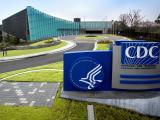Dec 28, 2005 (CIDRAP News) – Before adjourning last week, the US Senate passed and sent to President Bush a bill providing $3.8 billion for pandemic influenza preparedness and a controversial liability shield for those who produce and administer drugs and vaccines used in a declared public health emergency.
The preparedness funding and liability protection were part of the fiscal year 2006 defense spending bill passed by the Senate on the evening of Dec 21. The bill had cleared the House 2 days earlier.
The $3.8 billion for pandemic preparedness is a little more than half of the $7.1 billion Bush had requested in early November. House Republican leaders said last week the measure would fund roughly the fiscal year 2006 portion of Bush's request.
As reported previously, the amount includes $350 million to improve state and local preparedness and directs the Department of Health and Human Services (HHS) to use most of the rest on "core preparedness activities," including increasing vaccine production capacity, developing vaccines, and stockpiling antiviral drugs.
The liability provision offers broad legal protection for the makers of drugs, vaccines, and other medical "countermeasures" used when the HHS secretary declares an emergency. The provision says people claiming injury from a medical countermeasure can sue only if they prove "willful misconduct" by those who made or administered it. The bill calls for Congress to set up a compensation program for injuries, but it provides no funds for that purpose.
Senate Majority Leader Bill Frist, R-Tenn., and other Republican leaders argued that the liability measure was necessary to induce biotechnology companies to develop products to counter pandemic flu and other disease threats.
In a news release issued after the bill passed, Frist said the measure "extends limited protections to manufacturers, distributors, and first responders, so that life-saving countermeasures, such as an H5N1 avian flu vaccine, will be developed, deployed and administered."
He added that the bill "strikes a reasonable balance where those who are harmed will be fairly compensated and life-saving products will be available in ample supply to protect and treat as many Americans as possible."
But Sen. Edward Kennedy, D-Mass., and some other Democrats, along with consumer groups such as Public Citizen, derided the liability provision as a giveaway to the drug industry. Kennedy said the bill makes it "essentially impossible" for injured parties to sue for damages. He also argued that the measure allows the HHS secretary to use many common diseases as a reason to activate the liability shield.
"Without a real compensation program, the liability protection in the defense bill provides a Christmas present to the drug industry and bag of coal to everyday Americans," stated a Dec 21 news release issued by Kennedy and Sens. Tom Harkin, D-Iowa, and Chris Dodd, D-Conn.
The liability protection language, called the Public Readiness and Emergency Preparedness Act, was tacked onto the end of the huge defense-spending bill (H.R. 2863).
It gives the HHS secretary authority to trigger the liability protection by declaring an emergency if he or she determines that a disease or other health threat represents an emergency or may constitute an emergency in the future. The act does not list any criteria for determining the existence of an emergency. The declaration would have to list the diseases, populations, and geographic areas covered and when the emergency would end.
Such an emergency declaration is not subject to court review, and it preempts any conflicting laws or regulations of states or local communities, the act says.
The measure says those who make and administer medical countermeasures covered by an emergency declaration are immune to lawsuits unless the plaintiff can provide clear evidence of willful misconduct that resulted in death or serious physical injury. "Willful misconduct" is ruled out if the party who administered the treatment followed HHS recommendations and notified health authorities of the relevant injury within 7 days.
In addition, the act instructs the HHS secretary to write regulations "that further restrict the scope of actions or omissions by a covered person" that constitute willful misconduct.
A party alleging "willful misconduct" can file suit only in US District Court in Washington, DC. The plaintiff must have an affidavit supporting the suit from a physician who did not treat the injured person. Before any suit can go to trial, a three-judge panel will consider any pretrial motions.
The act says that an HHS emergency declaration will trigger the establishment of a fund to provide "timely, uniform, and adequate compensation" to anyone injured by covered medical countermeasures. However, the measure does not appropriate money for the fund.
A person claiming injury from a covered treatment may not sue without first trying to collect from the compensation fund. But that requirement applies only if the compensation program has been funded. A person can sue if HHS fails to act on the request for compensation within 240 days.
If a plaintiff accepts an award from the compensation fund, he or she is barred from suing anyone, the act provides.
In arguing that the liability shield is too broad, Kennedy said in his news release, "The Bush administration could identify Vioxx as a needed countermeasure to treat the arthritis epidemic or to treat pain associated with flu, and completely immunize Merck [the manufacturer] from lawsuits currently pending against it."
See also:
The Library of Congress' Thomas site for the text of the liability shield (search "Public Readiness and Emergency Preparedness Act," part of HR 2863)
http://thomas.loc.gov/




















